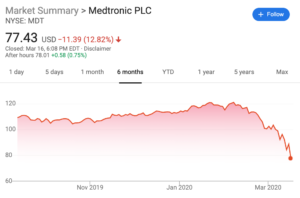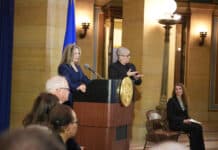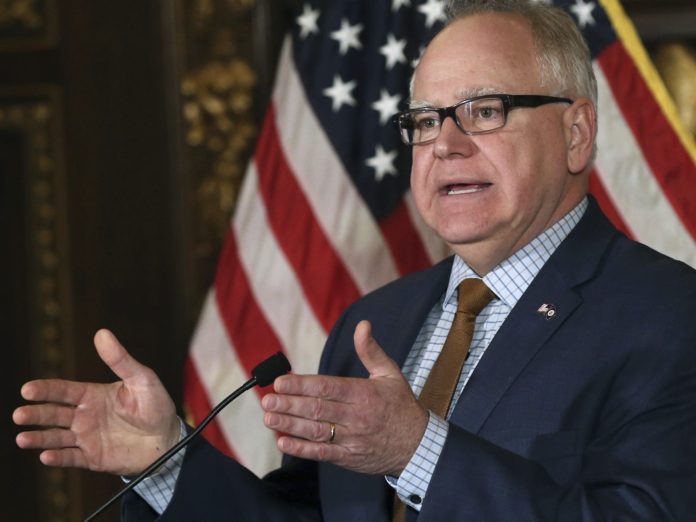Minnesota Governor Tim Walz admitted that his administration has not developed a plan to deal with what he calls “deteriorating economic conditions” amidst the COVID-19 outbreak.
“Deteriorating economic conditions caused by COVID-19 will stress Minnesota’s economy,” he said in a press release, Monday. The release also noted that Minnesota’s macroeconomic consultant, IHS, “now expects a U.S. recession beginning in the second quarter of this year.”
Despite these bleak predictions, and the fact that Minnesota ordered the closure of all bars, restaurants and other gathering places Monday, temporarily removing thousands of workers’ incomes, Walz’s office has not developed a plan to fix his state’s economy.
“If we feel that action needs to be taken to maintain the state’s fiscal soundness, we will develop a plan,” he said.

Another challenge faced by Minnesota’s economy is that of funding hospitals during a time of pandemic. The state’s hospitals have petitioned the government for $100 million in funding, a request that Republican State Senate Majority Leader Paul Gazelka says the legislature is working to fulfill via a bill it just took up, according to the Star Tribune. The legislature also announced that it will be moving to an “on-call” status until April 14th that allows lawmakers to move much of their work away from the capitol, according to Bemidji Pioneer.
Further complicating the state’s economic situation are predictions that it’s progressive tax policies may limit its ability to rebound from the coronavirus’ economic blow.
“If Minnesota’s economic growth rate had matched that of the U.S. generally since 2000, GDP per capita in our state would be approximately 18% higher now than it actually is,” according to Economist John Phelan from the Center of the American Experiment. “This would make it easier to withstand economic challenges and help the state bounce back from the effects of an event like COVID-19.”
Minnesota has confirmed 53 cases of COVID-19, as of Monday, according to the KTSP News. The state has also begun witnessing community transmission, meaning that several individuals who have contracted the virus report no recent history of travel or known contact with virus carriers.
















